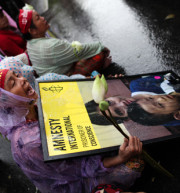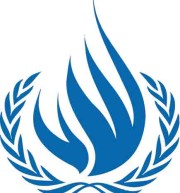
Six women working on women’s issues in Pakistan are killed in an ambush. A workshop for LGBT human rights defenders is disrupted by authorities in Uganda. Indigenous leaders in the Philippines are subject to a wave of harassment, threats and killings. Thirteen women in Cambodia are imprisoned for defending their community against corporate land-grabbing. And four migrant bus drivers in Singapore are charged with inciting an illegal strike. Exercising the rights to freedom of peaceful assembly and association can be dangerous for anyone, anywhere in the world. But sometimes – and in some places – the danger is elevated for certain groups. Maina Kiai’s next report as Special Rapporteur is expected to focus on exactly this subject: groups most at risk of attacks and reprisals when exercising their assembly and association rights. Kiai and his team are currently in the process of researching the report. As we begin work on the report, we would like to hear your views. Thus far, we have identified several groups as high-risk: women, youth, LGBT individuals, indigenous peoples, members of minority groups, persons with disabilities, migrants, and activists working for economic and social rights. Among these groups, which ones are most at risk in your country and for what reasons? What are... Continue reading →

A group of United Nations human rights experts, including Maina Kiai, today urged world Governments to ratify a key international instrument that allows individuals and groups who have been denied their economic, social and cultural rights to have their claims reviewed directly by a UN committee of experts. The Optional Protocol to the International Covenant on Economic, Social and Cultural Rights, which has just entered into force, has been ratified so far by ten pioneering States: Argentina, Bolivia, Bosnia and Herzegovina, Ecuador, El Salvador, Mongolia, Portugal, Slovakia, Spain and Uruguay, forming a “club for social justice”. “This new procedure empowers individuals and groups, regardless of their nationality or migration status, to invoke, among other things, the rights to food, water and sanitation, health, education, housing, work and social security, before the UN Committee on Economic, Social and Cultural Rights,” the experts said. The UN independent experts stressed that the Optional Protocol represents “a major step in the protection and realization of economic, social and cultural rights, and a powerful affirmation that they are as important as civil and political rights, and fundamentally interrelated and interdependent with them.” This new mechanism, they added, gives... Continue reading →